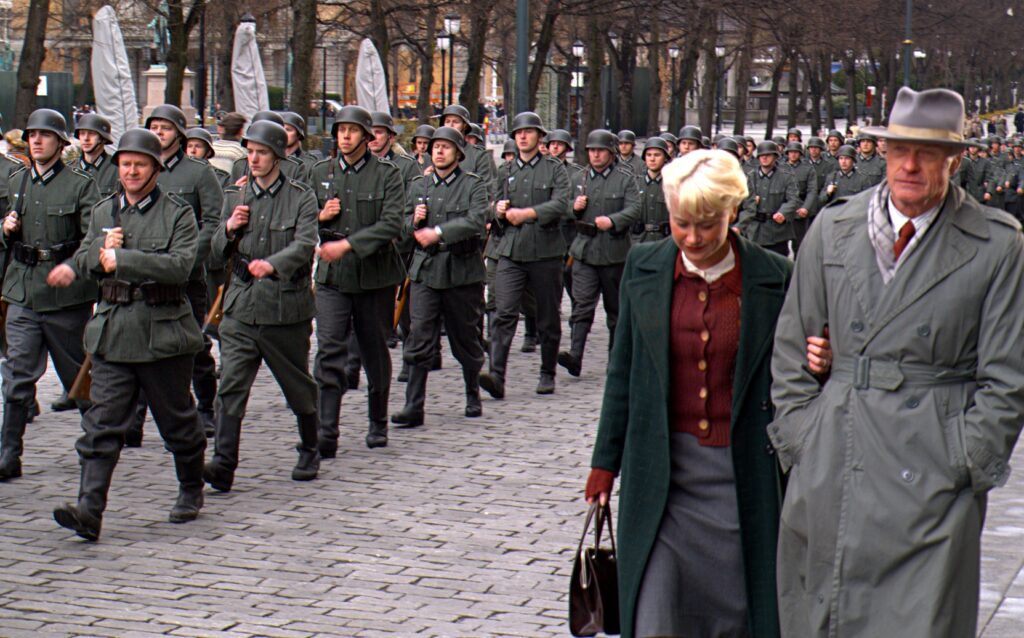
Before they were pulling down millions of dollars and working with the finest directors in the world, George Clooney, Channing Tatum, and Renee Zellwegger worked as extras. They had roles like, “Girl in Blue Truck” or “Pizza Delivery Boy,” and that was if they were lucky. Sometimes extras don’t even have a title, they are simply parked in the background to add a sense of reality to a scene. Even though background work certainly doesn’t guarantee you will go from “Partygoer” to playing Tyler Durden like Brad Pitt did, there are valuable lessons to be learned by working as an extra.
Reasons to Do Background Work
Everyone has to start somewhere and for actors with little or no experience on a movie or television set or for those fresh out of acting school, extra work is a great way to see how a set is run. This is especially true of professional sets which can be chaotic at times and run with a strict hierarchy of authority. As an extra you can learn the ropes so to speak, just by viewing and experiencing the atmosphere of a set.
Another benefit of background work is the networking that can take place. On set, you will come across actors, writers, and producers in a professional setting and in the entertainment industry, being seen is usually a good thing. Extras always have down time on set to chat up cast and crew and build connections that could lead to long-term friendships or work relationships.
Thirdly, extras get paid. Although the check is a pittance compared to what speaking actors earn, every little bit helps when you are an aspiring actor. Plus, it is possible that you will land a regular extra role that calls you back time and time again.
Finally, the dream of all extras is to be promoted to a speaking part. Even one line in a TV show or feature film can launch a career and the only way to get a part this way is to be on set.
Tips for Extras on Set
Most of these tips go without saying but here is a quick checklist of things to do as an extra:
- Be on time
- Be polite
- Follow directions
- Be patient
- Watch the lead actors prepare and perform
- Do not draw attention to yourself
Remember, you aren’t the star yet. Be invisible on camera and polite to everyone around you. They are there for the same reasons that you are.
Extras Aren’t Actors
There is a rabid fear among some actors that extra work will somehow ruin their budding career or that they will be pigeon-holed into background work forever. The odds of that happening are slim to none and here’s why. There are two separate casting directors for speaking roles and background extras. One holds auditions and casts based on those, the other most likely casts based on headshots, and they don’t collaborate. So, it is unlikely that you will be denied work because casting directors recognize you as an extra unless you tell them or advertise your extra work on a resume. (Both of which you shouldn’t do).
Don’t do extra work because it will get you famous. Do extra work because you want to learn more about your craft. Use your time on set to learn everything you can from the speaking actors and the other industry pros on set. Get on set as an extra a few times, then use your experience to grow as an actor and move on to focusing on landing a higher paying role in your next audition. The background will always be there if you need a hundred bucks to pay the rent.